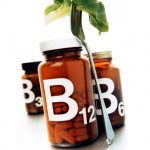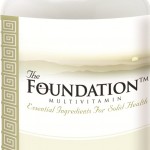
There are many benefits of taking vitamin B-12 supplements, especially when you learn you may have a vitamin B-12 deficiency. Many people take a B-12 supplement as part of their daily vitamin regimen to ensure they are maximizing their health and aiding in their body functioning at its peak. Known as the “energy” vitamin, B-12 has experience a surge in popularity the last few years as more and more people learn of the benefits of taking it. But what exactly does a vitamin B-12 supplement do?
First, B-12 aids in digestion. Because it is a protein-bound vitamin, it attaches to proteins as they travel through the digestive tract to ensure their absorption by the body. B-12 also assists in clearing the path of the intestines so that toxins and other non-essentials are removed from the body. People with Crohn’s disease find this especially beneficial, as they tend to be extra sensitive to the elimination process.
Heart disease remains the number one killer of adults in the U.S., and more and more people are learning of the benefits of vitamin B12 in protecting against it. B12 can curb, and even improve, unhealthy cholesterol levels, while also protecting against related conditions such as high blood pressure, and even stroke. The second biggest killer is cancer of varying types, and vitamin B12 assists in the prevention of lung, breast, prostate, and colon cancers. Are you starting to see the immense benefits of B12?
We’re just getting started.
The central nervous system is the key to managing the functions of the human body, and vitamin B12 is essential in keeping it running smoothly. Depression, shrinking of the brain, and even stress are reduced when proper levels of vitamin B-12 are maintained.
Vitamin B-12 improves energy levels, and has a long history of providing a boost for those suffering from fatigue. The mechanism for this is complex, but put simply; vitamin B-12 helps remove toxins from the body, and keeps the central nervous system running consistently. It is necessary to help the body convert carbohydrates into usable glucose, which is at the core of the body’s energy stores. This combination allows folks to feel more energetic, but it does not happen as quickly as many manufacturers of B-12 claim. The replacement of lost B-12, and recovery of those organs and functions of the body it affects take varying amounts of time. Increased energy is a big advantage, but typically is not experienced instantly.
Next, this essential vitamin aids in the reproductive process by increasing the motility of sperm in men, and stabilizing homocysteine levels in women. Increasing levels of B-12 have helped many couples overcome infertility, and significantly lowered the incidence of miscarriage when they do become pregnant. Since vitamin B-12 is safe to take before, during, and after conception, it is becoming one of the most widely utilized vitamins during couples of childbearing age.
More and more people are choosing a vegan and vegetarian lifestyle, and as a result are experiencing lower levels of B12. If these levels drop too low, they can create a deficiency, which can manifest as a host of health problems. Because vitamin B12 can be found primarily in animal and dairy based foods, eliminating these forms of protein can cause a risk to vegans. Taking a vitamin B12 supplement can help replenish the necessary levels, and ensure each persons bodily needs are being met.
Let’s not forget how “beautiful” vitamin B12 can be. This powerhouse is essential in skin cell renewal, which prevents us from looking old before our time. Healthy hair, skin, and nails can all be traced back to proper levels of B12 in the body. Move over fancy face creams and pricey hair potions!
Finally, vitamin B12 supplements can aid in the production of the hormone melatonin. Since the discovery of melatonin in the late 1950’s, researchers have learned that it regulates many of the other hormones of the human body. Most notably, melatonin regulates our circadian rhythm; the 24-hour patterns that keep our bodies on schedule. The daily release of this hormone is stimulated by darkness, and prepares our bodies for rest. Once the body is rested, melatonin preps the body for waking and light, and provides us regulation for the remainder of the day. When vitamin B12 levels are low, melatonin levels can become low and greatly affect the daily cycle of life.
There are many benefits of taking a vitamin B12 supplement in addition to these that we have listed. However, these are the most widely researched and accepted, and provide great reasons for each of us to take B12. What are you waiting for?











